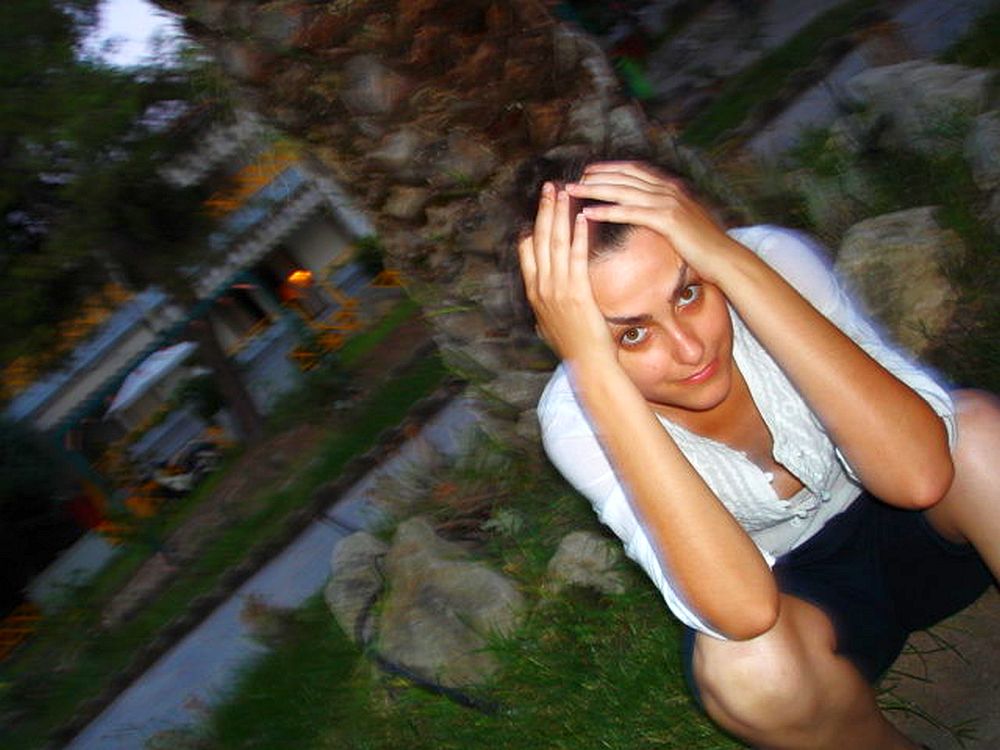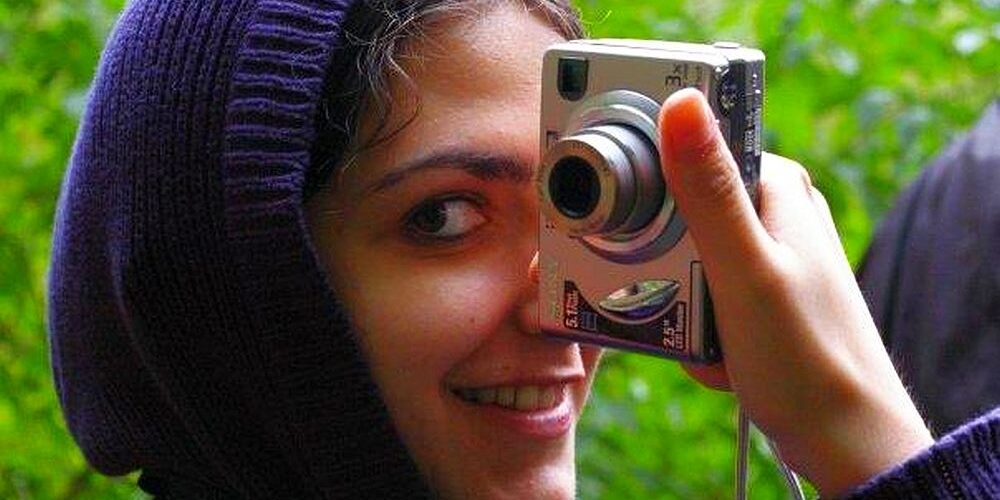Eva Kamchevska is one of most prolific playwrights and screen writers in North Macedonia and yet her work only infrequently makes it to the stage. She talks to Ivanka Apostolova Baskar about being an ’emerging’ artist and the absence of contemporary national plays.
Ivanka Apostolova Baskar: What does it mean to be an emerging or midcareer screenwriter, playwright and dramaturg in North Macedonia?
Eva Kamchevska: Emerging is a word that gives me shivers. Given my theater experience, I’m emerging, but given my biological years I should be midcareer playwright. In the case of theater. I often joke, I’ll have my debut as a playwright when I’m 50, that’s how people will remember me. It’s tragic. With the movies, maybe I would say I am midcareer. But if it’s a case of how much time has passed since I got my diploma from university, then I’m a senior (she smiles)
Ivanka Apostolova Baskar: You previously collaborated with the young theater director Milos Andonovski. What is your approach toward cooperation with colleagues in film and theater?
Eva Kamchevska: My attitude is to stay professional, honest and make the best of the collaboration we have. Since I’m not (for now) a scriptwriter/director, as it is a rule in our country, I have to be aware that the director might change stuff and his/her vision might be different from mine. So, it’s a process. It’s utopia to find perfect match, but I keep searching.
I had only one experience [of the theatre scene] very soon after graduation, as a dramaturg on Branch on the Wind, directed by Nela Vitosevic. Years after that, I met Milos, or maybe it’s better said thathe found me and got me back into theater. I’m very grateful for that. Milos is a very interesting and talented director, who has an enormous passion for theater and an ocean of ideas that he wants to develop. He doesn’t work in the traditional way (having a written play), at least not always, but finds enjoyment and challenge in finding new forms.
That’s how No Copyrights, our first collaboration happened. I’ve never worked that way before so it was very interesting for me. I was there the whole time, with him and the actors and really felt part of creating a theater piece from nothing. I think in the future we can grow as collaborators as we both learn about each other’s interests and style.
I started working with people that are much younger than me, as I feel they have a lot of courage to experiment.
Ivanka Apostolova Baskar: Our film makers are gaining international visibility, while domestic theater artists are mostly lost in apathy. How do you feel about this?
Eva Kamchevska: It’s not easy to be just a scriptwriter, since the directors write their own scripts. I have few short movies and one feature and hope to have many more since I feel like I write all the time, be it plays, short scripts, TV pilots, and ideas for a new feature. But it’s not [enough] just to write it. After that comes a whole other stage of making someone interested in what you’ve written – funds, co-productions, that all takes a looot of time. So, at times I feel l need at least a few lives to do all I want to do in my career. (she smiles)
It seems like Macedonian cinema is doing better than our theater scene. I think that’s due to the chances a lot of filmmakers get to attend workshops and development programs where they work on their projects. Unfortunately, this is not the case with theater. Theater directors tend to take well established plays that have stood the test of time. For us, as playwrights, I think we’re expected to write a masterpiece before we offer it to some director. Nobody wants to take a risk on a ‘no name’,
I can’t stress this enough – we need reading of our plays, workshops, fellowships, we (as playwrights) need to be in the theater. [This is how] good playwrights in the world are made. Of course, talent helps but we saw where talent took us by now. Young or middle aged playwrights are nowhere to be seen. Isn’t that a sign that something should change?

Photo: Eva Kamchevska:
Ivanka Apostolova Baskar: Over the last 5 years, you have become one of the most vital contemporary playwrights and scriptwriters in our country. What does living between the disciplines of film and theater mean to you?
For me it’s not something strange or out of the ordinary to work in [both] film and theater; after all, I studied both. I also love the two mediums and can see myself working in the two fields. However, for me it has become a quest for the Holy Grail to manage to see my play on
stage. But I’ll just keep writing.
Ivanka Apostolova Baskar: What are the conditions like for work and artistic creation in Macedonia. What are you happy with and what would you change?
Eva Kamchevska: I have a day job in TV so I have a constant income. This gives me the freedom to work on projects where the payment is very low. Also, my mother, as the parent of an artist, supports me morally and financially when needed. I’m aware that a lot of my colleagues don’t have day-jobs or they work in something totally not connected to their field of study and then don’t have time to work on what the really want. So, I’m lucky in that sense. The ideal would be to work only on your art but for now I can’t survive like that.
I wouldn’t change much about the independent theater scene. I would just say that we need more room for it, symbolically but also literally. As to the institutional theaters, I think contemporary playwrights and dramaturgs should not be included on occasion but as a rule. Not having national modern plays is, I must say, a form of a crime.
Ivanka Apostolova Baskar: Tell us about your 2021 play A Wedding To Remember, which was selected in the official programme of the Analogio International Theater Festival in Athens.
Eva Kamchevska: Yes, that was a surprise, I expected to be ignored just as I am at home. I
sound bitter, I know, and it wasn’t always like that. I used to think that not having success with playwriting was just the fault of the playwrights – we don’t write enough, we don’t fight enough,
we’re not pushing enough. It took me years to see that something is very rotten in the system, but why would I ask for bread when they give us cookies? It’s defeating when you acknowledge you’re not needed.
Ancient myths are eternal inspiration to me. But I didn’t always feel like that. While at university in Skopje, our dramaturgy professors spent a lot of time on the myths and I used to hate it. I found them boring and extreme. However, years after graduating I started to get interested in the opportunities and stories myths offer. When this call-out [from the Analogio festival] appeared I was instantly interested to try rewriting the myths.
The story takes place at the wedding of the prime minister’s daughter while a group of humiliated and angry people are protesting outside the restaurant, hungry for blood of the politicians that lied to them for years.
Ivanka Apostolova Baskar: How do you feel about contemporary feminism in Macedonia, whether in theater or the country as a whole?
Eva Kamchevska: The wave of feminism that happened all over the world and also here was a beam of light for me. There are things I believe in that couldn’t be discussed when I was growing up and that bothered me a lot. I just couldn’t grasp the traditional roles a man and woman had/have. I believe that affected me as a person. That’s why I feel like a light in the tunnel when I see that women are speaking out. However, like with everything that becomes popular someone tries to “make it filthy”. So, you can hear comments as ‘So now like every woman has been raped’, regarding the MeToo movement. I think that’s making real problems relative and I understand “the angry feminists” when they react harshly to that. There is a lot of deep pain women have endured for centuries and when someone just dismisses that lightly, well, we have a problem. If we want to make a better society, or even better – world – for everybody, we have to take these movements seriously.
As for female voices in theater, there are some pretty successful female directors, but we need more. In the realm of female playwrights, again, there are just some glimpses, like Katerina Momeva and Zagorka Pop Antoska Andonova.
I don’t see my play Bio Clock as a feminist play, I see it as [a play with] a female theme, and it was written because I had the need to say something about the reproductive role that woman has, the pressure put on her but also the biology of female bodies that we can’t change – at least till now, I hope medicine will evolve more and the ticking of the biological clock won’t be so threatening to a lot of women. I don’t tend to follow the trends and write what sells. I just follow the inner me. Not saying it’s the right way, but it’s my way.
Ivanka Apostolova Baskar: What are your future plans? What projects will you work on and with whom will you collaborate in 2022?
Eva Kamchevska: I feel like I’m constantly doing something but the results are not that visible. I’ll continue developing my own ideas, be it in film or theater, applying internationally. Projects that
are certain to happen are Skopjans (Citizens of Skopje), another project with Milos (she smiles).
Also, I’ll be a dramaturg in another interesting project called The Waiting Room, directed by Kristina Dimitrova and produced by Dino Chupevski. I’m developing my animated TV pilot, working on two other TV pilots based on books by Macedonian writers, including Lidija Dimkovska. A book with two plays of mine was supported by the Ministry of Culture – and the dream is that someone would get interested enough to breathe life into them on stage!
Further readings: Ева Камчевска: Се надевам дека уметноста ќе биде ударна вест на ТВ-дневникот
Dr Ivanka Apostolova Baskar is a self-employed author, editor, translator, lecturer, programme producer, creator of video theatre projects, and visual dramaturg. She collaborates with the Theater Times USA, Mediantrop-Belgrade; Macedonian Center ITI/PRODUKCIJA, Skopje Kreativa - Festival for Creative Industries, Faculty for Art and Design/EURM Skopje, and Stone Design`s No Man`s Land-Macedonian Pavilion, Venice Biennial-Architecture 2016. She is author of Theater Comics 1997-2020; In Search of Lost Director 2008-2020; Antropologija izkušenj v gledališču, 2019.








